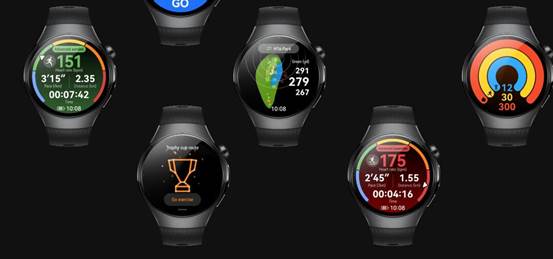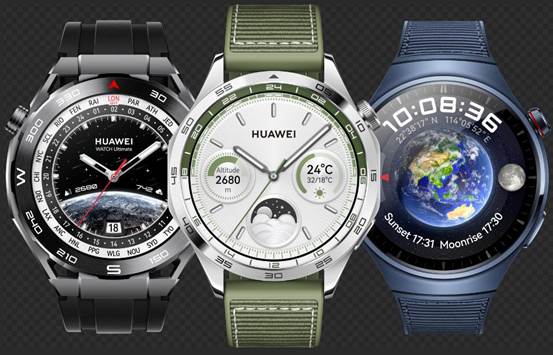Should Smartwatches Guide Moral Daily Decisions?
Smartwatches increasingly influence how
people make choices. They suggest when to move, remind users to rest, and track
wellness habits. But beyond health, they also open conversations about whether
technology can inspire more thoughtful, value-driven actions. Technology
already shapes how we communicate, spend money, and manage relationships.
Adding moral guidance pushes the conversation further. Could a wrist device
remind someone to recycle, reduce screen time, or pause before making an
impulsive purchase? To answer, we must examine how smartwatches interact with
values, personal freedom, and the evolving culture of responsibility. The
dialogue combines technology, ethics, and individual choice in new and dynamic
ways.

Smartwatches as Ethical Companions
Smartwatches already serve as constant
companions, quietly guiding habits. Their potential to extend into moral
decision-making comes from how they collect data, provide nudges, and influence
behavior in gentle, supportive ways.
Gentle Nudges Toward Ethical Living
Smartwatches thrive on reminders. They
nudge users to stand, walk, or breathe. Extending this feature, they can also
remind people to make ethical choices. Imagine a smartwatch that encourages
reducing unnecessary electricity use, choosing healthier meals, or reflecting
before a purchase. Such prompts align daily actions with personal values while
preserving freedom of choice. Over time, these reminders build consistent
habits that reflect ethical awareness. The key is subtlety—guidance without control, shaping
behavior without restricting autonomy.
Data as a Moral Mirror
Smartwatches hold vast personal data, from
sleep cycles to heart rates. When applied to decision-making, this data becomes
a mirror of lifestyle. A watch may highlight overwork, flag stress, or signal
unsustainable routines. Presenting this information with a values-based
perspective—such as linking rest to family well-being—adds meaning. Users see not only numbers
but also the broader significance of their choices. This reframing turns
neutral data into actionable insight, helping people live with accountability
and intention.
Expanding Algorithmic Support
Ethical decisions often involve nuance,
reflection, and cultural context. Smartwatches are not replacements for
conscience, but they can extend human capacity by offering timely cues and
structured perspectives. Instead of oversimplifying, wearables can complement
empathy and reflection by reminding users of principles they already value. In
this way, technology amplifies judgment rather than replacing it, creating a
healthy partnership between digital prompts and human wisdom.
Shaping Culture Through Technology
Smartwatches influence not only individuals
but also broader cultural trends. Their role in guiding moral decisions extends
to how societies define responsibility and shared values.
Encouraging Collective Responsibility
When devices encourage ethical actions,
they spark collective awareness. If many people receive reminders to reduce
waste, adopt sustainable practices, or show kindness, cultural habits shift.
Small individual actions accumulate into powerful social norms. Smartwatches
can contribute to movements promoting health, sustainability, and compassion.
Shared prompts about volunteering or donating to causes may ripple across
communities. Technology thus acts as a cultural lever, reinforcing values that
benefit everyone.
Supporting Work-Life Balance
Work culture often pressures people to prioritize tasks over well-being. Smartwatches challenge this by urging users to pause, breathe, and step away. Extending these prompts toward ethical framing, devices can remind professionals that rest fosters patience, fairness, and respect toward colleagues. By supporting balance, smartwatches help create environments where empathy and understanding thrive. Devices such as the huawei gt6pro already illustrate how wearables blend lifestyle with wellness, hinting at their potential to embed ethics into everyday routines.

Building Shared Ethical Practices
Communities thrive when shared rituals
reinforce common values. Smartwatches can synchronize prompts for group
mindfulness, eco-friendly practices, or charitable challenges. These collective
cues create a sense of belonging and cultural rhythm. A community reminded to
plant trees, donate together, or practice gratitude at the same time feels more
united. The device becomes not just personal but cultural—linking people through shared expressions
of values. Some worry that leaning on technology could weaken personal
responsibility. Yet with thoughtful design, smartwatches can reinforce
responsibility instead of replacing it. By presenting cues as supportive
suggestions, they encourage reflection rather than dictate action.
Conclusion
Smartwatches can positively influence moral
daily decisions when their role is framed as supportive rather than directive.
They offer gentle nudges, data reframing, and meaningful reminders that align
choices with personal values. They also shape culture by encouraging collective
responsibility, reinforcing balance, and inspiring shared ethical practices.
Instead of replacing conscience, smartwatches act as companions that make
values easier to live by. The most sustainable role for these devices lies in
guiding without controlling—helping people remain conscious of their ethics while leaving
decisions in human hands. In this partnership, technology and morality coexist
productively, with wearables empowering individuals and communities to live
with greater awareness, compassion, and integrity.


